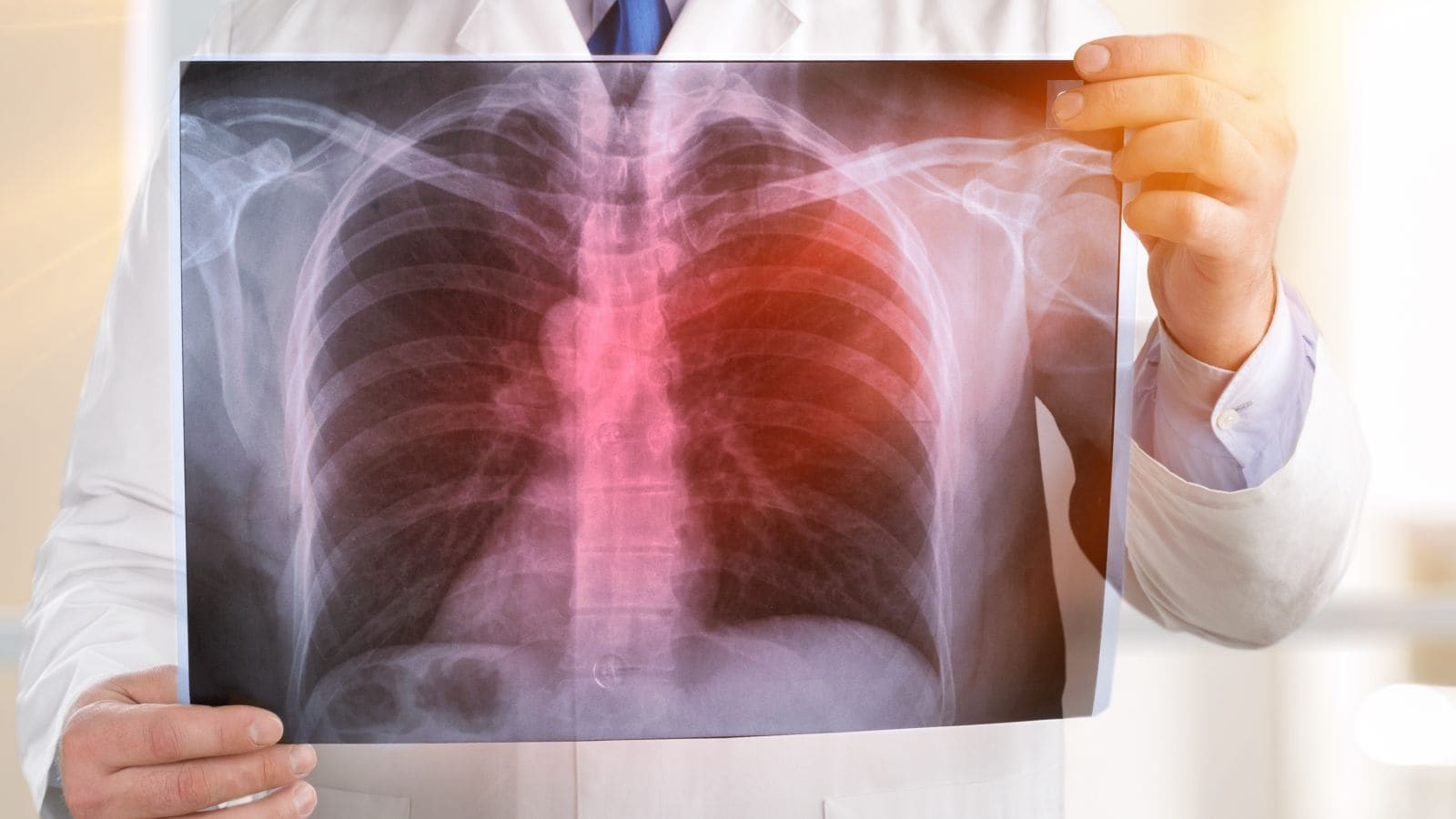Chat with ![]()
Chat with ![]()

Pneumonia is an infection that attacks one or both the lungs of people, including older adults. As we grow older, your immune system gets weak and tends to infect all kinds of bacteria and viruses. Bacteria are a common cause of this lung infection in adults. Pneumonia in the elderly can easily get severe, which is why timely treatment is a must. The problem with spotting the signs of this infection in seniors is that the classic symptoms like fever, and cough are usually not present. On World Pneumonia Day, observed each year on November 12, we tell you about the symptoms and treatment options.
It is a severe lung infection that causes inflammation in the air sacs (alveoli) of the lungs. “The alveoli may fill with fluid or pus, and lead to symptoms like cough, and fever. It can affect people of all ages, but is particularly dangerous for elderly individuals due to weakened immune systems and other underlying health conditions,” says pulmonologist Dr Pooja Bajaj.
It can be caused by different types of bacteria, fungi, and viruses, but bacteria are one of the most common causes of this infection in adults, according to the US National Heart, Lung And Blood Institute. Bacterial pneumonia, the most common form, often affects only one part of a lung, as per the American Lung Association. It has four stages of pneumonia:
Fever or a cough with phlegm are the typical symptoms of pneumonia. But older people with this infection usually don’t have these signs, as per research published by the US National Library Of Medicine in 2021. Possible signs of pneumonia in the elderly may include:
“In case of pneumonia in the elderly, pre-existing health conditions can also worsen,” says Dr Bajaj. Seniors with chronic underlying conditions such as heart issues, chronic obstructive pulmonary disease, diabetes or chronic kidney disease should consult a doctor immediately if they have this infection.
“Yes, elderly people can survive pneumonia, but the prognosis depends on factors like the severity of the infection, underlying health conditions, and timely treatment,” says the expert. Pneumonia in older adults happens fast and the prognosis is poor. The mortality rate for severe pneumonia in seniors is about 20 percent, according to a 2015 study published in the International Journal Of Clinical And Experimental Medicine.
Another study, involving 803 patients with pneumonia with a median age of 84 years, showed that one in five patients died during the hospital stay. During the one-year-study, published in the European Geriatric Medicine journal in February 2024, it was also found that a quarter of survivors were discharged with increased dependence on their families. Nearly half of the survivors died within the next year. Pneumonia in the elderly can be severe and deadly due to the following factors:
Treatment of pneumonia in elderly patients includes:
It is tailored for people based on the severity of the infection. “In outpatient cases, amoxicillin or doxycycline is given. In inpatient cases, a combination of antibiotics like ceftriaxone and azithromycin is prescribed,” says the expert. Finishing the full course of these medicines is important to ensure the pneumonia is completely treated.
People with this infection have trouble breathing. So, supplemental oxygen is given to them maintain adequate oxygen levels. Once the oxygen levels increase, the immune system will be able to fight off the infection better. Face mask, mechanical ventilation, and nasal cannula are some of the ways this therapy can be administered.
Fluids and high-protein foods are needed for recovery. Chicken, eggs, and legumes are good options to help with muscle recovery and immune function. If they have swallowing difficulties, give them soft foods such as oatmeal, yogurt, or mashed potatoes.
“Regular assessment for complications like sepsis (an illness in which the body has a severe, inflammatory response to germs, including bacteria), or respiratory failure are also needed,” says the expert.
Prevention strategies include –
“Maintaining a balanced diet, regularly working out, and following good hygiene practices can boost overall immunity and prevent pneumonia in the elderly,” says the expert. Pneumonia in the elderly should not be taken lightly as it can get severe. Know the symptoms and make sure to check with a doctor if they experience shortness of breath or have a racing heart.
Get latest updates on health and wellness along with Preventive Care, Family Care, Reproductive Care, Self Care

